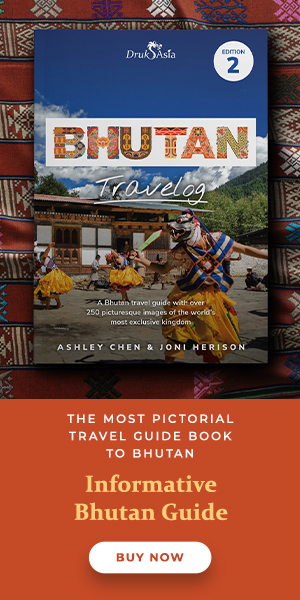A summary of Bhutan's 114th National Day
Every year Bhutan celebrates its most historically significant day – the National Day (Gyalyong Duechen) on 17th December.
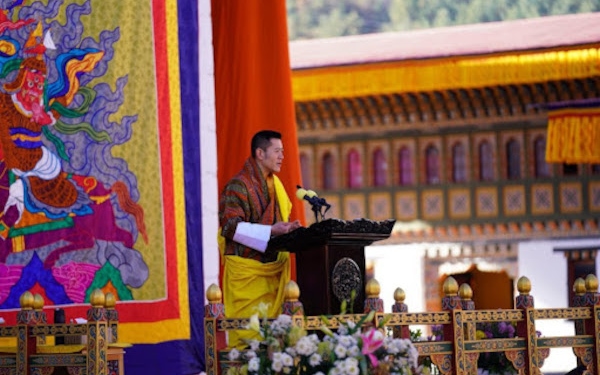
The historical importance of the day dates back to 17th December 1907 when Gongsar Ugyen Wangchuk was crowned as the hereditary monarch of Bhutan in the main congregation hall of Punakha; roughly a year after the proposal put forth by Raja Ugyen Dorji to the council of the state. Bhutan celebrated its first National Day on 17th December 1971 and since then the celebration continued for centuries. This year, Bhutan celebrated its 114th National Day in Tashi Choe Dzong, Thimphu, the capital city of Bhutan with the theme ‘Bhutan First’ to give priority to the national interest.
Given the global pandemic situation, it was a closed ceremony within Tashi Choe Dzong. His Majesty the King, His Majesty Drukgyal Zhipa, Her Majesty The Gyaltsuen, Prince Jigme Namgyel Wangchuck, Prince Jigme Ugyen Wangchuk, Their Majesties The Queen Mothers and the Members of the Royal Family were in the audience for the celebration. However, the celebration was telecast live to Bhutanese all over on the national broadcasting service channel to join in spirit.
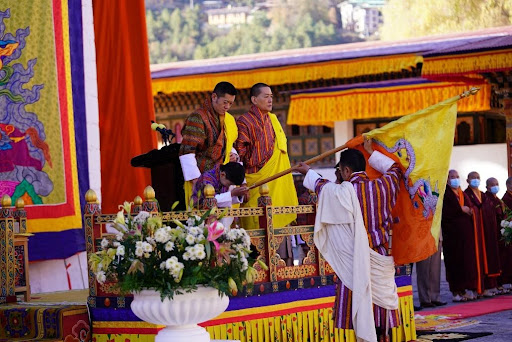
Figure 1: Marchang Ceremony (Pic: Facebook/KingJigmeKhesar)
The ceremonious day started with a traditional Chipdrel Ceremony escorting His Majesty the Fifth King followed by Prince Jigme Namgyel Wangchuck, Her Majesty The Gyaltsuen, royal family members and other guests to the dzong courtyard. His Majesty the Fifth King was greeted by His Majesty the Fourth King in the courtyard.
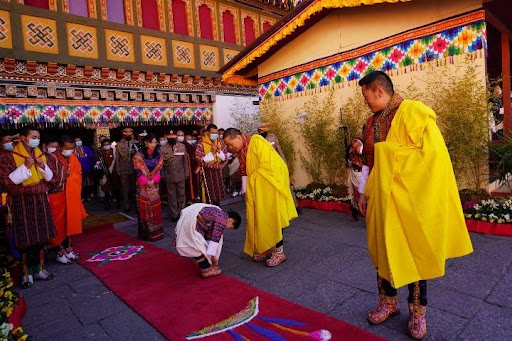
Figure 2: Gyalsey with HM The Fourth King & HM The Fifth King (Pic:Facebook/KingJigmeKhesar)
The national flag hoisting followed suit with troops of different sections of Royal Bhutan Army, Royal Bhutan Police, Desuups, Commandos and pazaps standing still to the instrumental music of the national anthem. Marchang ceremony was then conducted to appease the deities for good luck and the successful completion of the occasion.
Highlights of the address:
- His Majesty expressed appreciation of the vaccine assistance provided to us by different countries during this difficult time and also of the collective effort of the citizens in fighting the pandemic. “As a nation, we can be proud of the manner in which we have demonstrated exceptional resilience.”
- His Majesty emphasized our need to not lose sight of our focus on the many important national tasks ahead of us as we grapple with the continued challenges of the pandemic and prepare a way forward.
- His Majesty expressed his concern about being left behind due to our inability to adapt and not being in a position to take advantage of the many opportunities offered by technological advancements like Blockchain, Fintech, Quantum Computing, Artificial Reality, Virtual Reality, Metaverse, Robotics, Machine Learning and Web 3.0.
- His Majesty highlighted that while foreign experts and professionals have commented that our rules, regulations, laws and institutional procedures are among the best in the world yet we are not able to reap the benefits. And if it could be because of our misplaced compassion by not holding people accountable, not removing incompetent people but instead tolerating and even rewarding underperformers. His Majesty commanded that from now on all of us must boldly embrace accountability as a measure of our service, should we falter, deviate, and err in the service of our country. And His Majesty as a King, shall first and foremost exemplify the ideal of accountability.
National Order of Merit
- His Majesty The King awarded the National Order of Merit, Gold, to the Bhutan Red Cross Society (BRCS) in recognition of its exemplary service to the nation by building a community of volunteers throughout the country during the pandemic.
- His Majesty awarded the National Order of Merit Toeb Karma, the senior glaciologist from Bhutan’s National Centre for Hydrology and Meteorology (NCHM) for his dedicated service in preparing for climate-change-related risks.
- Dasho Dorji Gyeltshen, Zimpon to His Majesty the Fourth Druk Gyalpo, received the Druk Thuksey
- UN Office in Bhutan, Royal Bhutan Airlines (Drukair), Bhutan Emergency Aeromedical Retrieval Team (BEAR), and Royal Bhutan Helicopter Services (RBHSL) received the Druk Thuksey.
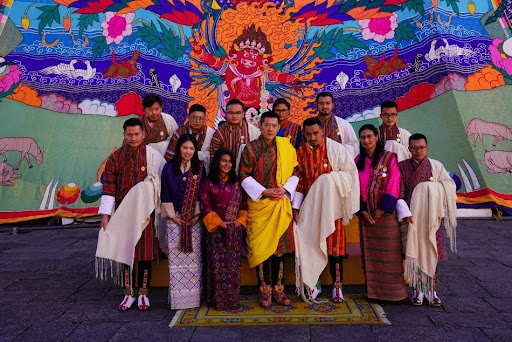
Figure 3: The BEAR Team (Pic:Facebook/KingJigmeKhesar)
PM Narendra Modi conferred Bhutan’s highest civilian award
His Majesty The King conferred the Order of The Druk Gyalpo, Bhutan's highest civilian award to His Excellency Shri Narendra Modi, the Prime Minister of India.
Entertainment program consisting of cultural dances and mask dances were performed. A National Day Concert was held on the evenings of 17th December and 18th December. The concert was exclusive for the Royal Family on 17th December and on 18th evening it was shown to select audience – two guests by each performer. The concert was also telecast live on BBS channel for the viewing pleasure of the public.
The commemoration of the National Day on 17th of December every year comes with the celebration of a reality check of how lucky we Bhutanese are in many ways to be living in such a peaceful country – thanks to the tremendous sacrifice of our forefathers and the continued selfless service of the current rulers led by His Majesty The King. It has become a day to reiterate our pledge to be of service to Tsa-Wa-Sum and to express gratitude through various creative means in the form of songs, dances and felicitations.
Translation of His Majesty King Jigme Khesar Namgyel Wangchuck's full speech
On the auspicious occasion of our National Day, I offer my deep prayers to Guru Rinpoche, humble reverence to Zhabdrung Ngawang Namgyal, and profound gratitude to His Majesty the Fourth Druk Gyalpo. I extend my heartfelt Tashi Delek to the people of the 20 Dzongkhags and Bhutanese living abroad.
Despite the threats from the Covid-19 pandemic, we have continued to successfully pursue our national goals. This is due to the blessings of the Triple Gem, the good fortune of our leaders, the merit of our forefathers, and the unified efforts of our people.
The Royal Government has successfully vaccinated the vast majority of our people. This was possible through the generous assistance of many countries like India, United States of America, China, Denmark, Bulgaria, Croatia and other partners like the COVAX Initiative. The quality and efficacy of vaccines such as Pfizer, Moderna, AstraZeneca, Covishield, and Sinopharm have been impressive. The people of Bhutan deeply appreciate the assistance provided to us during these difficult times.
Today, our Nation stands secure and peaceful. Yet, the foremost question in our people’s minds is when the pandemic will end. While it is difficult to provide a definitive answer, the most important task ahead is for us to remain fully prepared and vigilant.
We need to strengthen our efforts to fight the pandemic. Led by our Prime Minister, our ministers and senior government officials have been serving to the best of their abilities. Our civil servants, members of the armed forces, De-suups and other volunteers have served with dedication. Our people have also stepped forward to serve despite their own difficulties. Members of our monastic community have performed prayers and rituals to avert the dangers posed by the pandemic. As a nation, we can be proud of the manner in which we have demonstrated exceptional resilience.
As we grapple with the challenges posed by the pandemic, we must not lose sight of the many important national tasks ahead of us. Preparing our people for the future is one such immediate task.
Our journey ahead will be fraught with challenges. Within our lifetime, the global population will increase exponentially to nine or ten billion. This will be compounded by recurring pandemics and the impact of climate change. Unequal access to knowledge and technology will create greater disparities in education, opportunities and wealth. Conflicts among powerful nations may be unavoidable.
Blockchain, Fintech, Quantum Computing, Artificial Reality, Virtual Reality, Metaverse, Robotics, Machine Learning and Web 3.0 are just some of the rapid and sweeping changes brought about by technological advancements that we are beginning to see. Breakthroughs in nanotech, biotech and genomics will transform the future. What deeply concerns me is whether our people will be in a position to take advantage of these opportunities. Or if we will be left behind due to our inability to adapt.
For example, hydropower today is an important source of our wealth. With rapid advancements in harnessing nuclear, hydrogen, fusion, solar, thermal and wind energy, hydropower may soon lose its competitive edge. We may soon become a net energy importer.
Therefore, it is imperative to seize the opportunity and enhance the capabilities of our people, and strengthen the economic and governance framework to harness the potential ushered in by these rapid and dynamic technological changes.
While the school system plays an important role in nurturing our citizens, we cannot rely on this alone. We must not lose sight of the large number of people who are not in schools and educational institutes. Many have completed high school and are still in villages and towns working on farms or in small businesses. There are also those who have jobs in the formal economy. We must realize that knowledge and skills, if not renewed, will soon become obsolete. We must inculcate in us a culture of life-long learning.
As Bhutanese, we will embark on our journey together, regardless of socio-economic status and our educational qualifications. We need to be prepared for the future so that every one of us is equipped with the skills, competencies and experience to succeed and compete in the world. We must give utmost priority to skill, up-skill, and re-skill our people to make them world-ready.
I would like to share a conversation that I had with an elderly lady in a remote village. I asked her about some of the important developmental needs of the people in the village. She said that infrastructure like roads and bridges, electricity, drinking water, irrigation, mobile connectivity, schools and hospitals, land, proximity to urban areas and access to shops remained important.
I probed further about her personal difficulties and concerns and asked her how we could alleviate them. After some hesitation, she reluctantly shared that she had come to the painful realisation that money was most important to ensure a comfortable life. She reasoned that money is important to pay for expenses associated with travel, accommodation, children’s education, essential food items, wage payment for farm help, and repayment of loans taken to renovate or build homes. Cash income has also become more important due to the decline of traditional and customary institutions and practices of self-help and community cooperation.
Her observations were very pertinent. We have all seen and experienced how difficult it has become to own decent homes, secure meaningful employment and have steady sources of income. On the other hand, expenditure keeps rising and makes our people’s livelihood difficult.
We need to resolve these issues as soon as we can, before it tears our nation apart. Providing Kidu will remain important. That said, depending solely on the government to alleviate people’s difficulties is not sustainable as the government does not have infinite resources. We will never become self-reliant, if we were to continue to depend on the government for everything.
As our youth mature and become adults, they have to shoulder greater responsibilities. They will need to take care of their parents, work, and build assets to secure their future. When they do not find opportunities at home to realize their aspirations, they will head abroad inevitably. If we are unable to create better economic opportunities for our people at home within a decade or two, there will be a scarcity of young people in Bhutan.
Creating greater economic prosperity for our people and the nation remains an important national goal. If our country prospers, the people will enjoy the benefits as they become more confident and self-reliant, and develop a greater sense of belonging to our country. Should we fail, our people will suffer.
When we talk of prosperity and wealth, it is important to distinguish between transient and enduring prosperity, so that we are clear about our national aspirations. For example, it is possible to become wealthy through gambling, rent-seeking, and other unethical means. A country can also become prosperous if it looks only at short-term gain at the expense of long-term national interest. We should never go down this path of acquiring transient wealth and prosperity.
Instead, we should focus on creating prosperity for our people and nation in a sustainable manner. A prosperity that is underpinned by good governance, smart policies and strategies, driven by innovation, creativity and enterprise, supported by a culture of hard work and determination. We can also derive enduring prosperity by better understanding and utilising our sovereign prerogatives. We can achieve generational prosperity by supporting our people as they develop their capabilities and realize their potential. We must reinvigorate the efforts made by successive governments on these fronts.
We need to strengthen our foundation by improving the educational standards, craft policies to diversify economic opportunities for our youth, and support private sector growth. The role of the civil servants is critical for this endeavour. Therefore, efforts are underway to reform the civil service.
I am grateful for the tremendous support and confidence we have got in undertaking these reforms. While working with the civil servants, I have been impressed by their qualifications, competence, and commitment to serve our people. As we work with the best of our civil servants and with foreign experts and professionals, we are learning new ideas every day and formulating fresh, clear, and bold strategies for our future.
Despite this, I have serious concerns whether we have the will to fundamentally address some of the challenges that I’ve highlighted earlier. Several efforts have been made in the past to reform and improve our governance. However, we have yet to see tangible, meaningful improvements.
Foreign experts and professionals have commented that our rules, regulations, laws and institutional procedures are among the best in the world. Yet we are not able to reap the benefits. Where have we gone wrong? Could it be due to our misplaced compassion by not holding people accountable, not removing incompetent people but instead tolerating and even rewarding underperformers?
We know our country best. We are a compassionate and close-knit society. We hesitate from giving our honest views or taking bold actions, which might risk offending or displeasing others. As a result, the strength of our national character, exemplified by courage and determination of our forefathers, has weakened; complacency has set in, discipline has waned, and corruption is on the rise. This has unfortunately given rise to a popular perception that two laws coexist in the same country. If we allow such practices to proliferate, we will become more vulnerable to even greater risks and dangers.
All of us are aware that we are a tiny, land-locked and developing country with a small population and limited resources. As the world around us changes rapidly and the future becomes more uncertain, we are becoming more vulnerable.
What we need now, more than ever, is a corresponding degree of resolve and determination for our national interest. The strength of our national character, courage, grit, and fortitude must define every aspect of our national endeavour. I have witnessed the boldness, rigour, resolve and sternness that had defined the reign of His Majesty the Fourth King. Unfortunately, these qualities have deteriorated over the last fifteen years of my reign.
From now on, all of us must boldly embrace accountability as a measure of our service, should we falter, deviate, and err in the service of our country. As King, I must first and foremost exemplify the ideal of accountability. I do not say these to trigger any alarm or anxiety. We are not too late in getting our priorities right, re-focusing our national goals, and re-aligning our national priorities and strategies. If the King, government and the people continue to work hand-in-hand with dedication, perseverance and fortitude, we still have every opportunity to further strengthen our country and achieve greater prosperity for our people.
As underpinned in our age-old saying, “the golden yoke of secular laws,” accountability must henceforth become the cornerstone of governance. We must correct those who deviate, be firm with those who do not deliver, replace those who are incompetent and terminate those who underperform and have therefore become a liability to our system and nation. We must not hesitate to expose those who engage in corrupt practices so that we send a strong signal to deter others from doing so.
There is nothing new in what I am sharing today. These are part of daily conversation among our people while expressing their concerns, hopes and aspirations. Rather than leave these concerns and sentiments within the confines of their homes, I re-articulate them today as the King’s Command on this National Day.
